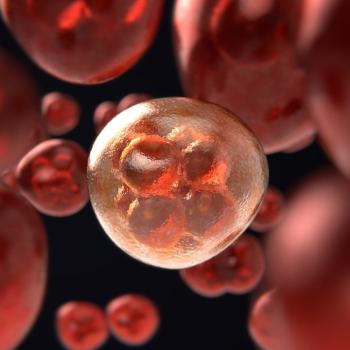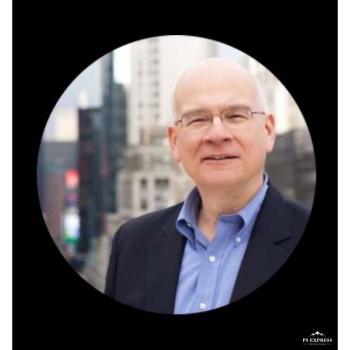 After a fantastic time of worship, the team welcomed every nation present – there were more here than ever before. Together on a Mission is a truly international conference with people from as far a field as America and South Africa. Terry Virgo introduced the speaker who leads the newfrontiers church in Cape Town, which was previously led by Simon Petit.
After a fantastic time of worship, the team welcomed every nation present – there were more here than ever before. Together on a Mission is a truly international conference with people from as far a field as America and South Africa. Terry Virgo introduced the speaker who leads the newfrontiers church in Cape Town, which was previously led by Simon Petit.
To begin to speak on the martyrdom of Stephen at the beginning of an exciting Christian gathering might seem like an unusual choice. But Stephen is a great motivational speaker, and within minutes there was a rapt sense of attention as he skilfully preached the Word.
The systematic destruction and scattering of the church in Jerusalem seemed like a disasterous time, and yet Stephen made the point that the sovereignty of God meant that this turned out to be the tipping point for the biggest outreach to that point – Philip, when scattered, went to Samaria, and joy broke out at the salvation, deliverance, and healings that happened.
The Antioch church (Acts 11) which was, of course, one of the key sending churches of the New Testament era, was also birthed out of that terrible event of Stephen’s death. Michael Eaton says, “When everything is going wrong, actually everything is going right” – the perspective of how God turns around bad events for the good of the apostolic advance of the church.
We as a movement are eager to press on, and it is vital that we learn what the key ingredients are for apostolic advance from these passages.
The first essential ingredient is God. As I heard in a different message over the weekend, church planting is impossible – it is about creating something out of nothing. It is God’s speciality to make things out of nothing. It is God who makes churches grow! Without Jesus, we truly cannot do anything. We are not meant, therefore, to feel small; we are to lift our eyes from our own weakness and focus instead on the greatness and grandeur of God.
This is vital for those of us who are struggling to be faithful; too often we get deluded into thinking that merely by working harder we can see success. The truth is that it really is God who builds His church. He has all authority, and has SENT us to the ends of the earth – not to manage on our own, but with God. The biggest responsibility leaders have is to be besotted with Almighty God and – as he said, “beholding before going, encountering before commissioning.” We need to SEE God more clearly and encounter His glory. The purpose of these few days is to connect with God.
The second key ingredient is courage. Philip does not hang low for awhile and pray for peace and quiet! Instead, he goes for it. It’s almost like saying, “Here I am, use me for target practice.” The whole situation turns on Philip’s courage. It’s so encouraging to note what the preacher today said, “Our actions matter . . . if we are going to reach new frontiers, it will require each one of us to win personal faith battles. Growing personal faith empowers apostolic advance.”
As an example, giving an appeal to respond to the Gospel is such a battle for the preacher – who will on the inside be saying, “No one is going to be saved by this message.”
Key ingredient 3 is a diversity of gifts. Ephesians 4 is illustrated by Acts 8 and 11. Philip the evangelist single-handedly established a work there, but to build the church he calls the Apostles to join him. This releases Philip to move to his next assignment. The church in Antioch also could have been tempted to say, “We don’t need leaders, let’s be a faceless nameless multitude.” But they receive Paul and Barnabas, having called for help from Jerusalem. Then a prophetic band led by Agabus came. We see here Apostles, prophets, evangelists, and pastor/teachers working together to serve the purpose of God and break open new regions.
Newfrontiers stands for a multiplication of these gifts in our day for the purpose of the maturity of the church. Co-ordination of the different gifts seen in Ephesians 4 is essential – merely acknowledging the continuance of these gifts is not sufficient!
Key ingredient 4 is multi-coloured expression. Chapter 11 sees a switch in the centre of the focus of the book of Acts to Antioch. This is because it was the first multi-ethnic community church. It was God’s purpose to switch events from monocultural Jerusalem to multicultural Antioch. It is critical that we line up with God’s multicultural passion. “God is more glorified by diversity than He is by uniformity” (John Piper). Stephen said, “We don’t just tolerate diversity, we celebrate it!” and challenged us to change our priorities and investment of resources to reflect that.
Key ingredient 5 includes pressure, hardship, and persecution. Stephen said, “Stephen’s stoning to death served as a catalyst to kick-start the Jerusalem church into Apostolic action.”
The normal Christian leader’s life is made up of pressures and difficulties. “We must go through many hardships to enter the Kingdom of God” (The Bible). Stephen said, “The very thing that you are most worried about could actually be the very catalyst to propel you into God’s purposes for your life.”
The transforming grace of God – in Acts 8 Paul is killing Christians, in Acts 11 he is a key leader in a church established as a direct result of Paul’s own persecution! As Stephen put it, he went “from persecutor to pastor in three chapters . . . talk about amazing tansforming grace!” The one we would have least expected turns out to be the one that became the premier apostle!
Stephen ended his message by saying, “God’s grace is enough to bring us into everything that he has got for us.”
















